Nationwide there are about 2,200 pending projects.
On the morning of May 23, the National Assembly discussed in groups many contents, including additional assessment of the results of the implementation of the socio-economic development plan and the State budget in 2024; and the implementation of the socio-economic development plan.
Speaking at the discussion at the National Assembly delegation on the issue of saving and fighting waste, Prime Minister Pham Minh Chinh said that the Government has reported to the National Assembly on the waste related to backlog projects that have lasted for many years and many terms, as well as waste related to inappropriate policies such as those in the wind and solar power sectors.
The Prime Minister said that according to statistics from localities, the whole country has about 2,200 backlogged projects. If these projects can be resolved, more than 230 billion USD, equivalent to about 50% of the country's GDP, can be released. In order to release resources from backlogged projects, the Government is continuing to develop policy mechanisms to submit to competent authorities for handling.
Regarding wind power and solar power, recently a series of projects had to be handled through Resolution 133. The cause comes from bad policies, leading to negativity, massive construction of projects that are not in accordance with planning, procedures...
The head of the Government affirmed that the viewpoint is not to legalize violations but to find solutions to handle them. Such as handling the organization, human resources, handling the institutional aspect, removing legal obstacles, removing implementation methods. "When the situation changes, the tasks must change, the policy mechanism must change," said the Prime Minister.
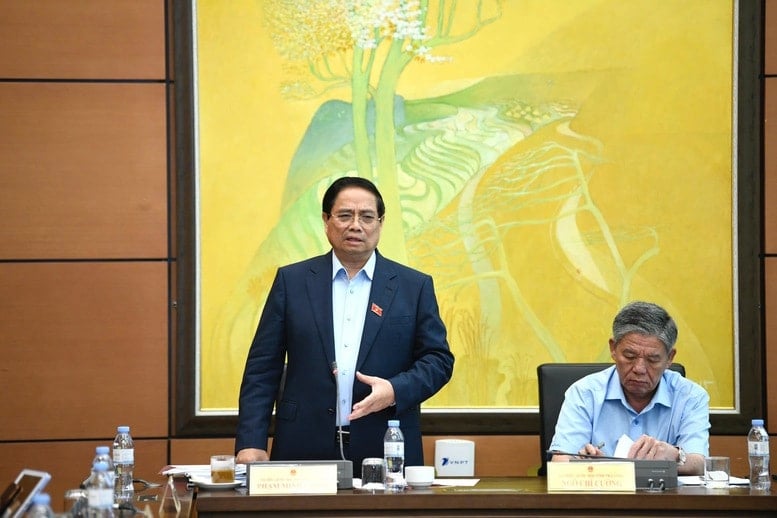
Notably, the Prime Minister said that it is necessary to accept this as a "disease", and if there is an illness, it must be treated, but the treatment must be correct. "To treat an illness, one must have surgery, which is painful and requires blood loss, and two, clinical treatment, taking medicine, still costs money. In short, if we overcome the consequences, we cannot expect to get 100% back, we must accept the loss, accept the pain, accept what must be cut off", the Prime Minister stated his opinion. The important thing is that cutting off this pain will give us new lessons, give us new experiences to avoid repeating it in the future.
"Resolving the backlog of projects is something that cannot be avoided. We must accept some loss and consider it as tuition. From there, we will develop policies and mechanisms, and be determined to resolve and resolve them completely," said Prime Minister Pham Minh Chinh.
In addition, the Prime Minister said that land for forestry and agricultural farms is also a burning issue. Previously, the management and establishment of forestry farms were very necessary in the development process, but when implementing, management was lax, without timely, flexible and effective policies.
Therefore, now we must deal with the consequences both legally and practically, and find the best way to overcome them. If we do not accept the pain and loss, we cannot completely resolve the issue.
Regarding the handling of headquarters after streamlining the apparatus and rearranging boundaries, the Prime Minister said that he had assigned the Ministry of Finance to provide guidance, but the most important thing is for local Party committees and authorities to avoid waste. There are many ways to do it, and they must be creatively applied in specific conditions at the locality, agency, or unit, as long as there is no negativity, corruption, or waste, and the law can never cover all aspects of life.
The Prime Minister also spent a lot of time speaking about solutions to respond to climate change, develop irrigation infrastructure, and transport infrastructure in the Mekong Delta according to the roadmap, such as achieving the goal of having 1,200 km of expressway by 2030, and at the same time building and expanding airports in Ca Mau, Phu Quoc, Kien Giang, Can Tho, Cai Cui port, Tran De port, Hon Khoai port, etc.
Solutions to achieve high growth
Regarding solutions for growth targets, Prime Minister Pham Minh Chinh said that in the very difficult context of the world, many countries and regions forecast lower economic growth compared to last year and compared to the beginning of the year; but Vietnam sets a higher GDP growth target than initially expected, striving to reach 8% in 2025 and reach double digits in the coming years.
Thus, we are going against the world trend in terms of growth targets. What must we do to be effective and successful? The Prime Minister raised the issue and said that we are actively carrying out 3 strategic breakthroughs in terms of institutions, infrastructure and human resources.
In particular, institutions are the bottleneck of bottlenecks, the breakthrough of breakthroughs, the driving force and the resource for development. We are determined to basically remove institutional bottlenecks by 2025 and thereby turn institutions into competitive advantages. The Prime Minister asked the National Assembly to strongly support this.
Second, promote strategic breakthroughs in infrastructure, which is also a bottleneck because logistics costs account for 17-18% of GDP, compared to the world's about 10-11%, reducing the competitiveness of Vietnamese goods.
The Prime Minister said that he is focusing on developing strategic infrastructure, especially all five modes of transport.
In terms of roads, at least 3,000 km of expressways and 1,000 km of coastal roads will be completed this year. In terms of railways, the North-South high-speed railway project will be implemented, connecting routes with China, thereby opening up international connections with Central Asia, Europe, urban railways, and upgrading existing railways.
Regarding inland waterways, focus on developing in the Mekong Delta, which has advantages in this field. Regarding aviation, build, expand, and upgrade strategic airports that can accommodate the largest aircraft, develop the fleet, and develop many airlines to create competition that benefits the people. Regarding sea routes, build large seaports such as Lach Huyen, Cai Mep-Thi Vai, Can Gio, Hon Khoai, etc. that can accommodate large ships.
At the same time, synchronously develop infrastructure for healthcare, education, culture, sports, society, digital transformation infrastructure, science and technology infrastructure, climate change response infrastructure, etc.
Third, in human resource breakthrough, the Prime Minister said that we should shift from mainly knowledge training to comprehensive skills training, training international-class human resources to meet integration requirements, thereby increasing labor productivity.
The Prime Minister also said that we are determined to renew traditional growth drivers including investment, export, and consumption. In particular, fiscal policy must reduce taxes, fees, and charges for businesses and people, while collecting correctly, fully, and promptly, increasing savings in regular spending to increase spending on development investment; regarding monetary policy, efforts must be made to reduce interest rates, increase access to capital, defer debt, extend debt, and postpone debt, etc.
Promote production and business, diversify markets, products and supply chains, reduce input costs, compliance costs, and minimize administrative procedures for people and businesses. Vietnam is also ready to listen and dialogue to resolve issues of concern to partners in the spirit of mutual benefit, harmonious interests, and shared risks, including continuing negotiations with the United States on tariffs and trade.
Along with that, promoting new growth drivers such as science and technology, innovation, digital transformation, digital economy, green economy, circular economy, sharing economy... These drivers are motivated and inspired by resolutions of the Party, National Assembly, Government, ministries, branches and localities that must be actively and proactively implemented.
Source: https://baodaknong.vn/giai-quyet-dut-diem-cac-du-an-ton-dong-phai-chap-nhan-mat-mat-coi-do-la-bai-hoc-253445.html




![[Photo] Anh Hoang - Dinh Duc successfully defended the men's doubles championship of the National Table Tennis Championship of Nhan Dan Newspaper](https://vphoto.vietnam.vn/thumb/1200x675/vietnam/resource/IMAGE/2025/5/23/d6ab3bcac02c49928b38c729d795cac6)

![[Photo] Top players gather at the 2025 Nhan Dan Newspaper National Table Tennis Championship](https://vphoto.vietnam.vn/thumb/1200x675/vietnam/resource/IMAGE/2025/5/23/9ad5f6f4faf146b08335e5c446edb107)

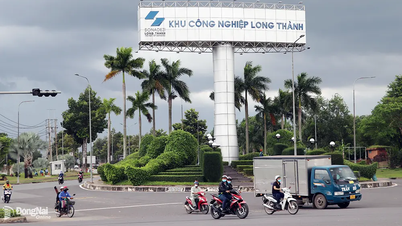

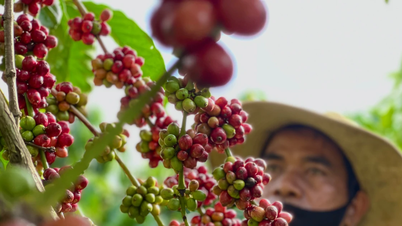

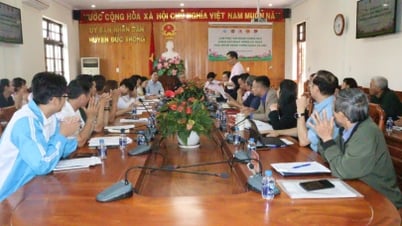

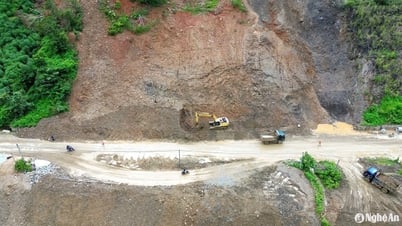

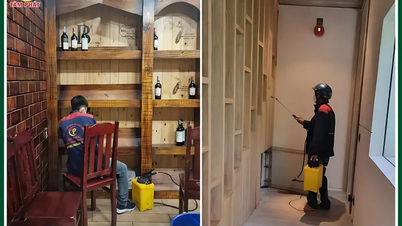

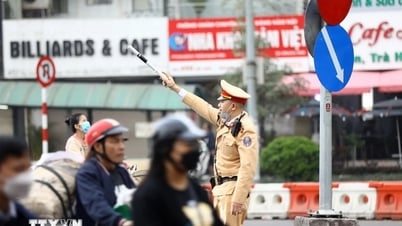





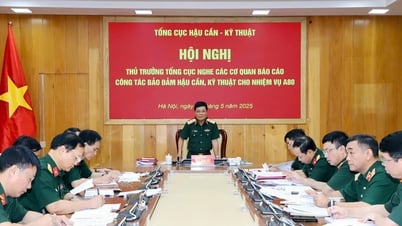
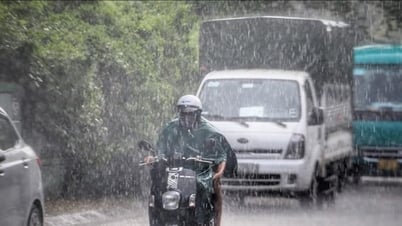
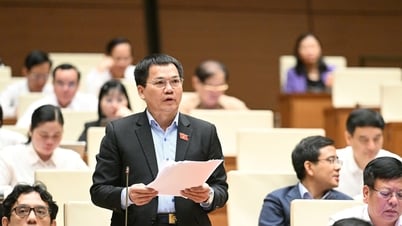
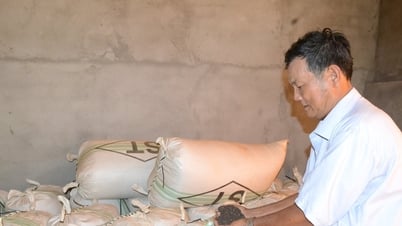

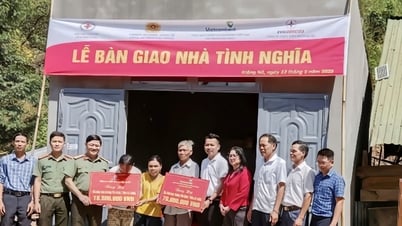















































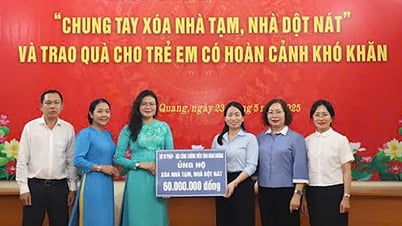



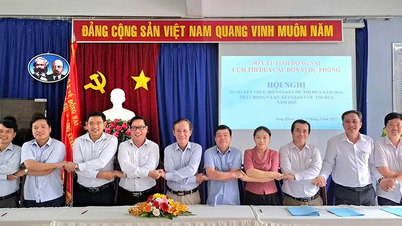
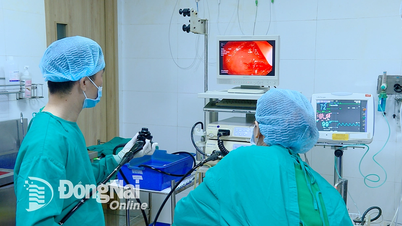












Comment (0)